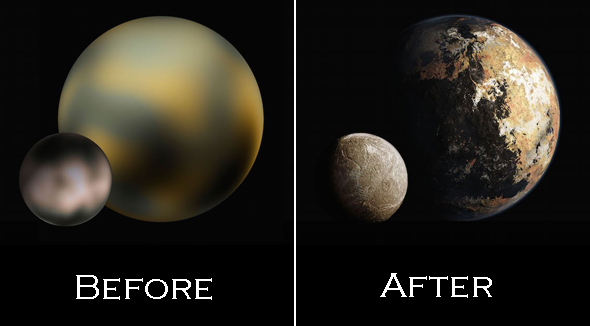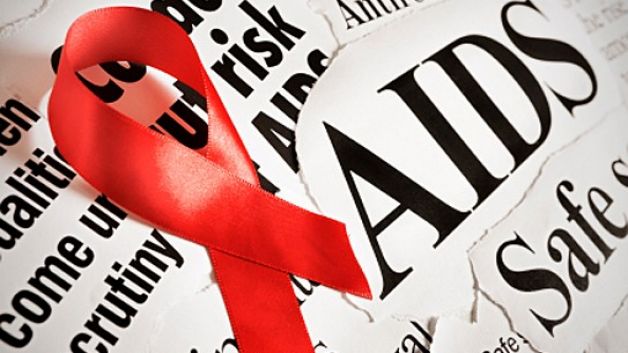ShopDreamUp AI ArtDreamUp
Deviation Actions
There's no denying that 2015 wasn't exactly the best year ever. There was the Charlie Hebdo shooting. Donald Trump. The Paris attacks. Donald Trump. The Planned Parenthood shooting. Donald Trump. The numerous college protests. Donald Trump. Donald Trump. Donald--oops! I shouldn't say his name three times, lest I summon the demon!
But despite all of this gloom and doom, there were some small slivers of hope that shone through, and I'm here to count down the Top 10 Good Things About 2015. Why Top 10? Because someone else does Top 11s!
#1: Gay Marriage Legalized
Last year saw the most states legalize gay marriage. The years prior to that saw the repeal of the discriminatory Don’t Ask Don’t Tell (DADT) and Defense of Marriage Act (DOMA). This year saw the fight for gay rights crescendo as the Supreme Court legalized gay marriage on the federal level.
Now, gay and bisexual couples within any state are free to marry like their heterosexual counterparts. While the fight for LGBT equality may be far from over, there’s no denying that this year saw a grand victory for those who firmly believe that loving, consenting adults should be free to marry those they love, regardless of whether they are the same sex or not. In the end, both love and equality wins.
#2: NSA Ends Metadata Collection
Since 9/11, our government has exploited the fear of terrorism in order to push for invasive security measures. The most controversial of these measures has been the US PATRIOT ACT, which permits the government the ability to perform warrantless wiretaps.
For years, Americans were aware that the government was spying on others, but it wasn’t until Edward Snowden’s controversial leaks that they learned the full extent to which their government was spying on them. Two years since those leaks, more and more Americans have been demanding that their government curtail its Big Brother spying capacity.
Their demands have since been somewhat answered, as the NSA ended its bulk metadata collection as of December 1. Now the NSA will be required to receive a court order in order to collect metadata from phone companies. Credit for this development should be due to Sen. Rand Paul, as it was his blocking of the USA FREEDOM ACT earlier that summer which allowed the Patriot Act powers permitting such spying to expire.
While this has by no means completely stopped the NSA from spying on American citizens, it has somewhat limited its capacity to do so. Hopefully, if more of these developments continue, perhaps we will finally see an end to the Big Brother surveillance state, and with it, a return of our constitutional civil liberties and the privacy that it entails.
#3: China Ends One-Child Policy
China ended the controversial "family planning policy” known as its One-Child Policy, which, true to its name, restricted families from having more than one child. The country implemented the policy in 1979 to help roll back its then population of one billion and spur economic growth. At that time, environmental estimates speculated that the world’s growing population was surpassing the planet’s capacity and resources, which would inevitably lead to a societal collapse.
Nearly three decades later, and the world’s population had long surpassed the original estimates without any of the same environmental gloom-and-doom. Instead, China’s One-Child Policy not only failed to boost the economy, but had also led to unintended consequences such as forced sterilizations, abortions, and mass infanticide.
China has since ended the controversial policy in an effort to spawn a new generation to replace its current dying generation. Granted, the government still restricts the number of children families may have, with that number having now been raised to two, but hopefully, what little leniency has been provided to China’s families will curtail the many problems created by the original policy.
#4: Venezuela Votes Out Socialist Party
When Hugo Chavez first took office in 1999, he promised the Venezuelan people that his socialism would lift them out of poverty. Nearly two decades later, and Venezuela has only fallen deeper into poverty with one of the world's worst economy.
The country faces shortages of basic necessities such as food and toilet paper on epidemic levels. Its citizens are forced to wait on long lines and use ID cards just to go grocery shopping. Some have become desperate enough to turn to looting and the black market to meet their needs. Politicians who once promised them that they would never go hungry again now tell them to eat fried rocks.
Downtrodden, hungry, and tired from their oppression and desperation, the people voted out their ruling socialist party. Now only time will tell whether the country will recover from being a “socialist paradise.”
#5: Space Exploration: Mars, Pluto, and Beyond
Not-so-long ago in a galaxy far far away, we as a species went to infinity and beyond, boldly going where no man has gone before—and I’ll stop with the obvious pop culture references and start pointing out the discoveries we made through space exploration.
Looking to our next-door neighbor in the solar system, NASA discovered evidence for liquid water on Mars. Scientists have routinely noticed dark blue steaks upon the planet's surface, and speculate them to be water that trickles down craters and canyon walls, with potential underground aquifers. This discovery gives leeway to there being potential life on Mars and the possibility of the red planet being habitable within the future.
On the outer rim of our solar system, NASA’s New Horizons spacecraft passed closer to the former planet Pluto than any previous spacecraft. In doing so, it was able to take clearer pictures of the planet’s surface. Now a lone planet that was once veiled in mystery has been revealed to have, “a dazzling landscape of ridges, ice mountains and plains of solid nitrogen hundreds of miles wide.”
Further off into space, NASA's Kepler Space Telescope spied the first earth-sized planet within the habitable zone of a star similar to our own sun. Named Kepler-186f, this planet is roughly the exact same size of the Earth, and orbits its star within a “habitable zone”, meaning that the planet has the capacity of harboring life. The planet exists within the Kepler-186 system nearly 500 light years away from our own earth.
Obviously, there are still far more discoveries waiting in the far reaches of space waiting to be discovered, and we can only hope that next year allows us to discover them.
#6: Criminal Justice Reforms
Despite less and less violent crime being committed in recent decades, more and more people are being locked away in prison, to the point where America has the world's largest prison population. So unless you’re a neocon cuck who believes that America needs to be more “tough on crime”, there’s no denying that America’s criminal justice system is broken and needs to be fixed. And while the overall system remains to be fixed, minor reforms have been made within the recent year.
Most notably, the Justice Department has been set to release 6,000 prisoners—the largest one-time release of federal prisoners. This release was the result of changes that were previously made to reduce the sentencing of criminals convicted of drug trafficking as to reduce prison overcrowding. Most of these prisoners set for release are non-violent offenders, and while not all of them will be released to the public, most will be sent to live within halfway houses as to better transition them to public life.
Another more minor reform involved New York overhauling solitary confinement. While isolating prisoners away from human contact may seem as benign as sending a toddler to the corner, the practice has actually caused serious psychological harm, to the point where it has been considered the worst type of psychological torture. As such, New York State passed new regulations that limited how long prisoners could be subjected to solitary confinement, and what offenses could be punishable by it.
Obviously, there are still far more problems that need to be fixed within the criminal justice system, but hopeful, the changes that have been made thus far will lead to many more. With prominent figures like Jon Oliver highlighting the many problems within the system, more Americans will become aware of them and demand more changes.
#7: Education Reform: NCLB and School Choice
As with the criminal justice system, our education is broken and in desperate need of fixing, and even though Americans students have been improving in math and science, there is still more room and need for improvement. Fortunately, as with our criminal justice system, small changes were made this year that will hopefully improve our public schools.
The biggest change was with leaving behind No Child Left Behind (NCLB)—an educational clusterfuck which, ironically enough, left many children behind. Its replacement, the Every Student Succeeds Act (ESSA), focuses less on standardized testing and shifts authority over curriculum and educational standards away from the federal government and towards the states.
Nevada enacted the nation’s first universal school choice program. Under this program, parents will be offered 90 percent (100 percent for children with special needs and children from low-income families) of the funds that would have otherwise been spent on their child in their public school deposited into education savings accounts (ESAs), allowing them to send their children to the school of their choice, be it public, private, charter, or even home school. The program was challenged by the ACLU, but proved victorious in the end.
Finally, Khan Academy and the College Board partnered to offer a free online prep course for the SAT, allowing more students, regardless of their background or income, the opportunity to better prepare for college entrance exams.
Again, there is still much that needs to be reformed within our education system, but with the changes that have been made thus far, more changes could very well be on the future.
#8: HIV/AIDS Vaccines
When HIV/AIDS was first discovered, contacting the disease was considered a “death sentence.” Since then, the disease is no longer the “death sentence” it once was, as HIV/AIDS rates have decreased dramatically in America. This increasing impotency of HIV/AIDS has been due to many medical developments, many more of which have been made as of last year.
Dr. Robert Gallo, who was one of the leading researchers who discovered the disease, and who helped develop a blood test for it, announced that he was running a human trial on a potential HIV vaccine. The vaccine, which he and his team at the University of Maryland spent nearly two decades researching and producing, would "protect patients' immune systems from the variations of the virus classified under 'HIV-1,' which constitutes the vast majority of infections worldwide." The trial of the vaccine began in October, and is expected to take one year to undergo. If proven successful, the vaccine would be "a promising step forward in the fight against a virus that's had a massive impact on global health."
While there are yet no cures for HIV/AIDS, there are many treatments that are being created to prevent the disease. One of these treatments is pre-exposure prophylaxis (PrEP), which is being used to prevent HIV infections in people who are most susceptible to it, namely gay men and drug users. Most recently, the largest study of the use of PrEP revealed no new HIV infections within patients during the study’s two-and-a-half-year run. If these findings are accurate, than this treatment could prove effective at preventing future HIV/AIDS infections.
We are far from curing HIV/AIDS, but if current trends continue, the disease could be eradicated within the next generation. One day, the headlines will announce that the cure has been found; and even more hopeful, one day, they will announce that HIV/AIDS will have gone the way of Polio. Let us hope that day comes soon!
#9: Self-Driving Cars and Ride Sharing
The year 2015 has come and pass, and while we may not have flying cars (let alone hoverboards), other innovations have been made with our vehicles, to the point where they may be driving themselves in the near future.
Autonomous vehicles have been experimented with for a long time, but recently, enough breakthroughs have been made that they may be on the road sooner than expected. In fact, nearly 10 million cars are projected to be on the road by 2020. Both China and Switzerland have promised self-driving buses within the next few years, while companies such as Google and Uber have promised to offer self-driving cars and services in the near future.
Speaking of Uber, it and other ride-sharing services have won major victories this year. Ride-sharing services have faced heavy challenges from taxi companies, many of which hold corrupt cartels over their cab services, and many of which have sued to apply burdensome regulations onto the new services in order to curtail their competition. In the end, innovation won over legislation with Uber winning lawsuits in London and New York City.
With technological innovations with self-driving vehicles and economic innovation through ride-sharing services, it's only a matter of time until people will be summoning self-driving cabs for their transportation needs.
#10: Apple Pay and “Cashless Societies”
When Apple Pay was first introduced in October 2014, it was by no means the first method of mobile payment. Other mobile payment services such as Google Wallet and Softcard had previously existed. Apple Pay was unique in that it allowed mobile payments to become more convenient and secure through significant technological innovations.
With Apply Pay, customers could simply swipe their iPhones or Apple Watch without so much as opening an app in order to make quick and secure financial transactions. While Apple Pay usage may not have increased since its introduction (in fact, it's decreased), overall mobile payments have increased, as more shoppers are using these payment services to purchase items in stores.
Apply Pay and other mobile payment services appear to be part of an overall trend of Americans doing away with paper money. More than half of Americans (most significantly, millennials) are carrying around less cash and relying more on debit and credit cards for their transactions and purchases. Who knows? If these trends continue, America could very well become a “cashless society.”
In fact, other countries have already taken the initiative of going cashless. Sweden has recently become the world's first cashless society, as the majority of its citizens have shifted towards making electronic-only transactions through the mobile payment service, Swish.
What Swish has done for Sweden, Apple Pay and other services could easily do for America. Just imagine a world where people no long carry around wallets, and instead used their phones and watches to make their everyday purchases. Such a cashless future could easily be on the near horizon, with the rise of digital currency leaving paper currency behind in the sunset. Only time will tell.
Other Good News
- Saudi Arabian women win the right to vote and run for public office, with the very first woman elected to office.
- Facebook CEO Mark Zuckerberg vows to donate 99 percent of his Facebook shares to charity.
- Rich douchebro teenagers, Ethan "Affluenza" Couch and Martin Shkreli, get their just desserts with criminal charges against them.
- Global poverty drops below 10 percent for the first time ever, as forecasted by the World Bank.
- Pixar’s Inside Out breaks box office record for opening weekend for an original movie at $700 million.
- Star Wars: The Force Awakens becomes fastest movie to earn $1 billion globally at the box office.
- South Park airs its best (and most relevant) season within the past decade.
The Founder: My Expression Of Gratitude
I want to take a brief moment to thank all of the elected officials (the Presidents, Vice-Presidents, Senators, Congressmen/women, Judges, Lawyers, Secretaries,), and all of the Ambassadors, writers, editors, artist, and everyone else who had worked so hard over the years to make this experiment such a success.
We were the very first Forum-based Group, the largest, the longest lasting, and had the best political art on deviantART. Everyone who came after us modeled themselves after us.
I cannot thank everyone enough for all that they contributed.
Judge Roy Bean, Founder of the PoliticalForumClub
About Submissions
Dear DAPoliticalForumClub Members,
As you know, this group have submissions policy regarding deviations that get submitted here. I am going to post them here for future reference. This is to insure that, if you can't find the policy at Hansard-TheLaw, you can find them here:
Amendment III.. Respect Copyright.
Clause A. Do not copy and post entire copyrighted articles. If you wish to reference an article, provide a brief excerpt and include a link to the original source. Generally, excerpts should not exceed two or three paragraphs. This rule also applies to images in signature lines.
Clause B. Be aware, using someone else's artwork, even
Donald Trump, 45th POTUS!!
What does his inaugeration tomorrow mean to you? Do you bless and praise it, or curse and fear his taking the Oath of Office? Will you watch and cheer his taking the oath, or actively protest
Fidel Castro dead at 90.
The news out of Cuba is that Fidel Castro has died. Confirmed by his brother Raul, Castro's remains will be cremated.
His death marks the end of an era in many ways, and Fidel will remain a controversial figure for many years to come. Certainly, he is reviled by many in the Exile community. There is likely much celebrating in Miami and elsewhere. To many across Latin America and the developing world, he was a hero and icon of opposition to US Imperialism. He will be mourned wherever such persons are found.
That is all.
Featured in Groups
© 2016 - 2024 DAPoliticalForumClub
Comments7
Join the community to add your comment. Already a deviant? Log In
In regards to China, the end of the One Child Policy was motivated not just by an aging populace, but by the gender gap. There are, and this will have drastic consequences for coming decades, rather more men than women in China. Mind you, this phenomenon is also sharply pronounced in neighboring India, although for different cultural reasons...
This gap is not projected to have particularly good consequences for either nation towards the end of the century...
This gap is not projected to have particularly good consequences for either nation towards the end of the century...












